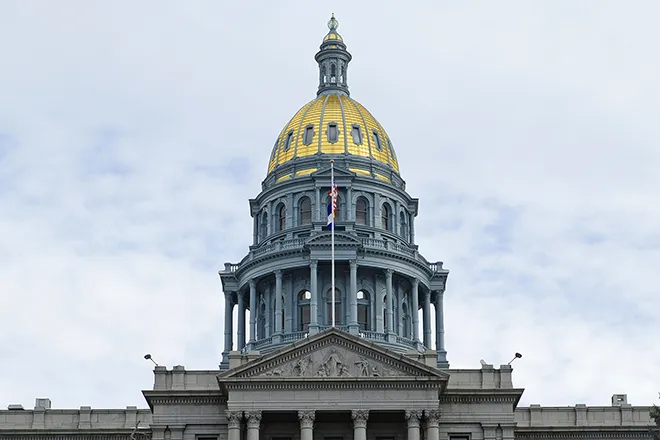
Daily Audio Newscast - June 24, 2025
© AlexLMX - iStock-823000260
Six minutes of news from around the nation.
Trump announces historic Iran-Israel ceasefire agreement to end '12 Day War'; IN college sports ban on trans athletes starts July 1; KY child overdose cases highlighted during National Safety Month; Report: More Gen Z students factor politics into college decisions.
Transcript
The Public News Service Daily Newscast, June the 24th, 2025.
I'm Mike Clifford.
President Donald Trump said a complete and total ceasefire between Israel and Iran will go into force with a view to ending the conflict between the two nations, moments after both sides threatened new attacks.
That's for Reuters.
The report Trump appeared to suggest that Israel and Iran would have some time to complete any missions that are underway, at which point the ceasefire would begin in a staged process.
On social media, Trump wrote, "On the assumption everything works as it should, which it will, I would like to congratulate both countries, Israel and Iran, on having the stamina, courage, and intelligence to end what should be called the 12-day war."
Next up, a new Indiana law takes effect July 1st, banning transgender women and girls from playing on women's college sports teams, expanding the state's earlier K through 12 restrictions.
House-enrolled Act 1041 applies to all public colleges and universities and any private school competing against a public institution.
Supporters say the measure protects fairness in women's sports by requiring athletes to compete based on their sex assigned at birth.
But Zoe O'Halen-Byrne with Indiana Youth Group says the law harms students already at high risk.
Laws like HB 1041 do more than restrict sports participation.
They send a loud and resounding message that transgender youth do not belong in Indiana.
Opponents of the new law say it isn't backed by facts.
O'Halen-Byrne says it distracts from the real challenges transgender students face on campus.
I'm Joe Ulari, Public News Service.
Find our trust indicators at publicnewsservice.org.
And June is National Safety Month.
Experts are highlighting medication safety for Kentucky kids.
Kentucky has seen a steady increase in pediatric overdose and ingestion cases, with research showing the number of cases doubled between 2019 and 2023.
The number of fatal pediatric ingestion cases in the state tripled over that same period, with 80 percent of those considered potentially preventable.
University of Kentucky pediatrician, Dr. Jenny Green, says safe storage is essential.
Making sure that the medications that are present are stored safely, and usually that's gonna mean keep them up and out of reach, but also preferably in a stored, locked location.
So thinking about medication lock bags or lock boxes tend to be the best.
She also reminds parents that child resistant does not mean childproof.
Brett Pivito reporting.
And the U.S. Supreme Court Monday allowed the Trump administration to deport migrants to countries other than their own, pausing a federal judge's ruling that said they must first be given a chance to show that they would face the risk of torture.
Back from the New York Times, they report the court's order gave no reasons and said the judge's ruling would remain paused while the government pursues an appeal.
This is Public News Service.
Nearly 30 percent of Gen Z college students decided where they would attend college based at least in part on political reasons, according to a new report.
The report by EAB found 14 percent of prospective students removed a school from their list for being too conservative, and 12 percent did the same for schools they deemed too liberal.
Pam Royal with the research group EAB says it's not so much that students are seeking out universities that align with their ideologies, but as they're making final decisions, the political leanings of a school might lead them to take some off their list.
They're eliminating certain institutions that they believe are misaligned with their political values, either because they're too conservative or they're too liberal, they're in a blue state or a red state.
She adds that students are also watching student protests at prospective colleges and how university administrators respond to those protests.
I'm Simone Perez.
14 percent of students also removed a school from their list for being too elitist.
Next, Mississippi faces a perfect storm of disaster vulnerabilities, according to a new 50 state analysis.
While the state maintains strong emergency response capacity through its National Guard, a study from SmileHub, a national nonprofit that analyzes community resilience and charitable effectiveness, reveals deeper systemic gaps that landed Mississippi in last place overall.
Researcher Luke Powers, whose mother happens to hail from Pascagoula, explains what's dragging down the state's score.
Mississippi ranks last overall due to very poor health infrastructure, low digital access, and high vulnerability to climate disasters, despite the relatively strong National Guard presence and a decent emergency management budget.
The study examined three key areas, community resilience where Mississippi ranked 45th, emergency planning at 32nd, and disaster risk coming in dead last at 50th.
I'm Tramell Gomes.
Finally, June is National Pollinator Month, and an agricultural group that aims to empower women in conservation is bringing awareness to how prairie restoration can aid the declining population of bees, butterflies, and other pollinators.
Through its Wisconsin Women in Conservation Program, the Michael Fields Agriculture Institute is showing how reintroducing native plant species, among other practices, can reestablish these endangered habitats that support an entire ecosystem.
Christine Johnson with the Institute says their current focus of pollinating lands and communities is intentional for many reasons.
Besides being a place of empowerment for women in this space, which has traditionally been male-led and focused, we are also reminding folks that conservation is a practice that should persist even as our resources are depleted.
I'm Judith Ruiz Branch Reporting.
This is Mike Clifford for Public News Service, member and listener supported.
Find our trust indicators at publicnewsservice.org.
















